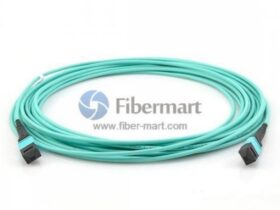Retirement is supposed to be the time you kick back and relax, but if you’re anything like me, you start itching for something to do. After spending decades on construction sites, I found myself missing the satisfaction of a good day’s work—and, let’s be honest, a little extra cash never hurts.
Over the past few years, I’ve dabbled in all sorts of side hustles. Some were a great fit, others not so much. If you’re a beginner looking for something flexible and not too complicated, here are the side hustles based on the Side Hustle Database I’ve personally tried and recommend.
1. Handyman Services
This one felt like a natural fit for me, given my background. But you don’t need to be a master carpenter to get started. Most folks just need help with basic repairs—fixing leaky taps, hanging shelves, patching up drywall, or assembling furniture. I started by offering my services to neighbors and friends, and word of mouth did the rest.
Why it’s great for beginners:
You set your own hours and rates, and you can take on as much or as little work as you want. Plus, the jobs are usually straightforward if you have basic tools and know-how. There are even apps like TaskRabbit or local Facebook groups where you can advertise your services.
Tip: Start small. Even if you’re not an expert, most people just want someone reliable who shows up on time and does a tidy job.
2. Dog Walking and Pet Sitting
I never thought I’d be the “dog walking” type, but after watching my neighbor’s golden retriever for a weekend, I realized how enjoyable it could be. If you like animals and don’t mind a bit of exercise, this is an easy way to earn extra money. You don’t need any special skills—just patience and a love for pets.
Why it’s great for beginners:
It’s flexible, low-stress, and doesn’t require any upfront investment. Many pet owners are looking for trustworthy, local people to care for their pets while they’re at work or away. I signed up on Rover and PetBacker, but most of my gigs came from word of mouth.
Tip: Start with one or two pets at a time until you get the hang of it. Always ask about each animal’s quirks and routines before you agree to the job.
3. Delivery Driver (Food or Groceries)
After years of heavy lifting, I appreciate a gig that lets me sit down! I tried delivering food for Uber Eats and groceries for Instacart. All you need is a smartphone and a reliable vehicle (or even a bicycle, depending on where you live). The apps are easy to use, and you can work whenever you want.
Why it’s great for beginners:
There’s no boss breathing down your neck, and you can log in and out as you please. It’s a great way to get out of the house, listen to music or podcasts, and make a bit of money on your own schedule.
Tip: According to Side Hustles Database, try to work during busy meal times or weekends for the best earnings. And always double-check the order before you leave the restaurant or store!
4. Selling Crafts or Woodwork Online
I’ve always enjoyed tinkering in my workshop, so I decided to turn my hobby into a side hustle. I started making simple birdhouses, picture frames, and garden planters. I listed them on Facebook Marketplace and Etsy, and to my surprise, people snapped them up!
Why it’s great for beginners:
You don’t need to be a master craftsman. Simple, well-made items sell well, especially if you use reclaimed wood or add a personal touch. Plus, you can work at your own pace and set your own prices.
Tip: Take clear, well-lit photos of your work, and be honest about the condition and size. Good customer service goes a long way—answer questions promptly and pack items carefully for shipping.
5. Tutoring or Mentoring
You might not think you have much to teach, but you’d be surprised. I started offering basic math tutoring for local kids and mentoring young people interested in the trades. You don’t need a teaching degree—just patience and a willingness to share what you know.
Why it’s great for beginners:
It’s rewarding, flexible, and you can do it in person or online. Websites like Superprof or local community centers are good places to start. If you have a skill—whether it’s carpentry, math, or even just life experience—there’s someone out there who can benefit from your guidance.
Tip: Start with what you know best, and don’t be afraid to ask for feedback. Sometimes, just being a steady, encouraging presence makes all the difference.
6. Flipping Items for Profit
If you’ve got an eye for a bargain and don’t mind a bit of hunting, flipping can be surprisingly fun and profitable. I started by clearing out my own garage—old tools, unused gadgets, and even some vintage signs I’d collected over the years. Once I saw how quickly things sold on Facebook Marketplace and Carousell, I started picking up deals at garage sales and thrift shops to resell for a tidy profit.
Why it’s good for beginners:
You don’t need a lot of money to start—just look around your house for things you no longer need. Listing is easy, and you learn as you go. I found it’s a great way to declutter and make some quick cash at the same time.
Tip: Clean up your items and take good photos. Honesty in your descriptions goes a long way with buyers.
7. Selling Printables and Spreadsheets
This one surprised me. I’m not the most tech-savvy guy, but I found out you can make and sell simple digital products like planners, checklists, or budget spreadsheets on platforms like Etsy. I made a basic home maintenance checklist and a budget tracker—stuff I’d used for years on the job and at home. It took a little time to learn the basics, but once I uploaded them, they started selling while I slept.
Why it’s good for beginners:
You do the work once, and it can keep earning for you. No shipping, no inventory, and you can start with free design tools online. There’s a bit of a learning curve, but plenty of tutorials out there can help.
Tip: Think about what problems you can solve for others—simple, practical tools are always in demand.
8. Local Service Business (Window Cleaning or Pressure Washing)
If you don’t mind a bit of elbow grease, local service businesses like window cleaning or pressure washing can be a goldmine. I started with just a bucket, squeegee, and some soap—offering to clean windows for neighbors and small shops. Later, I borrowed a pressure washer and started doing driveways and patios. The work is straightforward, and people are happy to pay for a sparkling result.
Why it’s good for beginners:
Startup costs are low, you can work on your own schedule, and word-of-mouth spreads fast if you do a good job. Plus, there’s always demand—nobody likes dirty windows or mossy driveways.
Tip: Start with friends and family to build your confidence and get some testimonials.
9. Freelance Your Skills (Writing, Bookkeeping, or Virtual Assistant)
You don’t have to be a tech whiz or a creative genius to freelance. I’ve met folks who make good money helping small businesses with basic bookkeeping, writing blog posts, or handling emails as a virtual assistant. I even picked up a few gigs proofreading safety manuals and putting together simple spreadsheets for local contractors.
Why it’s good for beginners:
There are tons of freelance platforms where you can find work, and you can start with the skills you already have. It’s flexible, and you can do it from home—great if you’re not keen on being out and about every day.
Tip: Start with one service you’re comfortable with, and don’t be afraid to charge for your time—your experience is valuable.
10. Wash and Detail Cars
This is one of those side hustles that’s easy to overlook, but it’s always in demand. I started offering car washing and detailing in my neighborhood—just basic washes, vacuuming, and wiping down interiors. Most people are happy to pay for a clean car, especially if you come to them. All you need are some cleaning supplies, a bit of elbow grease, and a willingness to get your hands dirty.
Why it’s good for beginners:
You can start with supplies you probably already have at home, and you don’t need any special training. It’s a great way to get outside, meet people, and make some quick cash.
Tip: Offer package deals (wash + interior clean) and ask happy customers to refer you to friends.
11. Print-on-Demand Design
If you’ve got a knack for doodling or clever slogans, print-on-demand is a fantastic way to turn creativity into cash. You design graphics for t-shirts, mugs, tote bags, or even phone cases, and platforms like Printful or Redbubble handle the printing and shipping every time someone places an order. No need to buy inventory or worry about packing boxes.
Why it’s great for beginners:
You don’t need to be a professional artist—simple designs or funny sayings often sell best. The platforms are user-friendly, and you can experiment with different ideas to see what catches on.
Tip: Start with a handful of designs, promote them on social media, and see which ones get traction. You can always add more as you go.
12. Blogging or Starting a Newsletter
I never thought I’d be a “blogger,” but sharing stories from my years in construction and lessons learned has been surprisingly rewarding. You can start a blog or newsletter about any topic you know well—gardening, DIY fixes, travel, or even life as a retiree. Platforms like WordPress, Substack, or Medium make it easy to get started.
Why it’s great for beginners:
You don’t need fancy tech skills, just a willingness to write and share. Over time, you can earn money through ads, sponsored posts, or paid subscriptions.
Tip: Pick a topic you’re passionate about and be consistent. Even a post a week adds up, and you’ll build a loyal audience over time.
13. Selling Digital Products
This is one of the most hands-off side hustles I’ve seen. You create something useful or interesting once—like a budgeting spreadsheet, a set of woodworking plans, or printable calendars—and sell it over and over. Sites like Etsy and Gumroad are perfect for digital products.
Why it’s great for beginners:
No shipping, no inventory, and you can start with just one product. If you’ve made a checklist, guide, or template for yourself, chances are someone else could use it too.
Tip: Think about what’s saved you time or solved a problem in your own life, and turn that into a product.
14. Social Media Management
You might be surprised how many small businesses need help with their Facebook or Instagram pages. I helped a friend’s landscaping business by posting photos of their work and responding to messages. If you’re comfortable with social media—even just the basics—you can offer to manage accounts for local shops, restaurants, or service providers.
Why it’s great for beginners:
You don’t need a marketing degree, just reliability and a willingness to learn. Many businesses are happy to pay for help with posting and interacting with customers.
Tip: Start by offering your services to someone you know, then use that experience to find more clients.
15. Giving Neighborhood Tours
This one is especially fun if you enjoy meeting people and sharing stories. I started giving walking tours of my neighborhood, showing visitors the best local eats, hidden parks, and bits of history. You can offer tours through platforms like Airbnb Experiences, or just advertise in local groups.
Why it’s great for beginners:
No special equipment is needed—just your knowledge and enthusiasm. You can tailor tours to your interests, whether it’s food, history, or architecture.
Tip: Plan out a route, practice your stories, and start with small groups. Word of mouth travels fast if you give a good tour!
Final Thoughts
Retirement doesn’t mean you have to stop working altogether. For me, these side hustles have been a way to stay active, meet new people, and keep a little extra cash in my pocket. If you’re just starting out, pick one that fits your interests and lifestyle. You might be surprised at how much you enjoy it—and who knows, you might even discover a new passion along the way.









